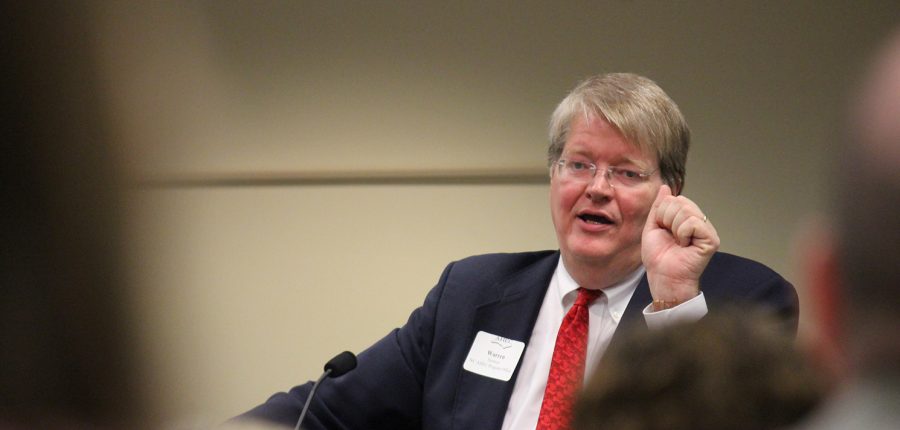Winter 2016 Director’s Message

As announced in the text below, Secretary of the NC Department of Health and Human Services (DHHS) Rick Brajer has formally asked for my involvement in DHHS, with a focus on the metrics of care for Medicaid reform and graduate medical education (GME) reform. I have accepted and my title within DHHS will be senior medical advisor. I will be spending at least 10 hours a week in DHHS, while continuing my current role as NC AHEC director, while also continuing to see my primary care patients.
In a time of great transformation in health care and health care education, NC AHEC is here to serve the state and we must answer the call. I also believe that there is a convergence of Medicaid and other reforms at the state level with the interests of AHEC. Now is the time for action.
Warren P. Newton, MD, MPH
Vice Dean & Director, North Carolina AHEC Program
William B. Aycock Distinguished Professor and Chair
Department of Family Medicine
UNC-Chapel Hill School of Medicine
Top N.C. Health Educator Joins Team Shaping N.C.’s Medicaid Reform
FOR IMMEDIATE RELEASE
February 9, 2016
Contact: news@dhhs.nc.gov
919-855-4840
RALEIGH, N.C. – Secretary Rick Brajer announced today that Dr. Warren Newton, a leading health educator in North Carolina, has agreed to serve the N.C. Department of Health and Human Services as a senior medical advisor to help shape Medicaid reform, while continuing his current role as director of North Carolina’s Area Health Education Centers.
Newton also serves as vice dean of the University of North Carolina, School of Medicine, and has been chair of family medicine at UNC for 17 years. He will be part of a team that is being assembled to develop North Carolina’s Medicaid waiver that is seen as crucial to Medicaid reform. The waiver will seek approval from the federal Centers for Medicare and Medicaid Services for improvements that will strengthen the state’s programs serving low-income individuals and families, while increasing efficiency and reducing costs.
“Dr. Newton’s depth of experience will be extremely valuable in helping shape this new health care delivery system,” said DHHS Secretary Brajer. “He knows North Carolina and understands its needs. And, it’s this knowledge that will be so important as we implement a North Carolina-based solution.”
Over the years Newton has developed a broad range of professional relationships with medical schools, hospitals, family practices, residencies and hospital systems.
“It has been my privilege to have known Dr. Newton for over 30 years and we greatly appreciate his willingness to share his expertise with the state of North Carolina as we work to improve health care for all North Carolinians,” said DHHS Deputy Secretary for Health Randall Williams, M.D.
Newton said he is delighted to have the opportunity to serve the citizens of North Carolina. “Medicaid reform will bring the biggest change in health care in two generations,” he said. “While we have come a long way – we can do much better. As we move forward, I am committed to bringing the voice of both clinicians and patients into the reform process, as well as the science of quality improvement and health outcomes research.”
A family physician who delivered babies for 12 years, Newton also founded the first hospitalist service at UNC Hospitals, adding specialists in the care of patients in hospital. He has practiced in a variety of safety net settings including Moncure Community Health Center and the Randolph County Health Department. He continues to be a personal doctor for a panel of about 400 patients. He has taught students, residents, fellows and practicing clinicians. He also has relationships with payers, such as Blue Cross Blue Shield.
An innovator, Newton founded and led the North Carolina Improving Performance in Practice project which has engaged more than 1,200 primary care practices in electronic health records implementation and quality improvement, the Central Carolina Community Care network as well as the Carolina Healthnet program, through Piedmont Health Services, which for vulnerable uninsured reduced hospitalizations by 20 percent and emergency visits by 50 percent.
